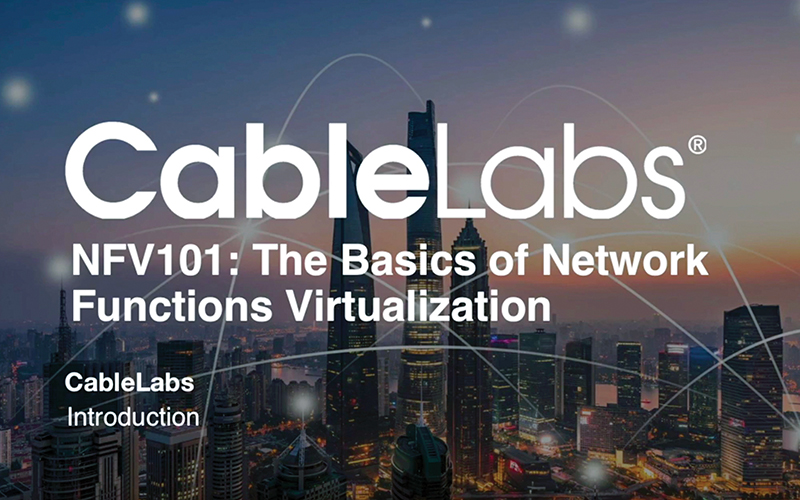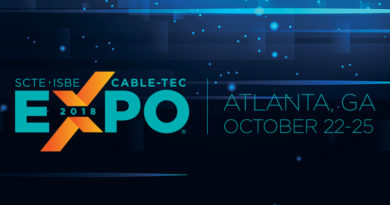Ins and Outs of Network Functions Virtualization
CableLabs’ NFV 101 Online Training Series
In just a few years, network functions virtualization (or NFV, for short) has matured from a trendy buzz word into a hallmark of next-generation network architecture. This new technology is rapidly re-shaping how our industry operates and delivers services to customers, so if you’re still wondering what it is and how it can affect your business, now is the time to get up to speed.
To complement the learning and development courses offered by the industry’s applied science arm, SCTE•ISBE, CableLabs has used its subject-matter expertise to develop NFV 101 training for anybody who wants to learn more about the technology. This free seven-part series covers NFV basics, key NFV requirements, use cases, current industry landscape, the role of open source and standards, and future trends.
Here’s what you can expect from each part of the series.
Part 1: NFV Basics
In a nutshell, NFV technology uses virtual servers to run functions traditionally associated with hardware, thus significantly reducing costs and improving the overall agility of the network. This section will lay the foundational building blocks by exploring what NFV is at its core. You’ll also get more detail on how it works with SDN and examine its impact on the network.
Part 2: Key NFV Requirements
For NFV implementations to be successful, key requirements in cloud-based network topology, performance, security, license management and other areas must be met. This section explores what those requirements are and how to manage them.
Part 3: NFV Use Cases
NFV presents some compelling use cases, and in this section we’ll explore some of the most prominent that we’re seeing in the industry, including vFirewall, vCCAP core with remote PHY device (RPD), and SD-WAN. This section also discusses NFV’s operational benefits, such as the reduction of hardware-related costs associated with truck rolls and simplified deployment of services to customers.
Part 4: Industry Landscape
In this section, we will dive deeper into the NFV architecture and what role each of its major components plays. You’ll also learn about the roles of network services and virtual network functions (VNFs) within NFV, along with how ETSI has impacted the development of this technology.
Part 5: Relevant Open-Source Projects
As NFV matured, so have open-source initiatives to improve the technology and its interoperability. In this section, we will review the major open-source initiatives and the role they play within the architecture.
Part 6: CableLabs and NFV
As NFV standards evolve, CableLabs is spearheading the effort to fill in the gaps in the open-source community and ease the adoption of SDN/NFV by the cable industry at large. In this part of the series, you will learn about SDN & NFV Application Platform and Stack (SNAPS™) — an overarching program that provides the foundation for virtualization projects and deployment leveraging SDN and NFV.
Part 7: Future Trends
With NFV technology, cable access networks are poised to become the best in the industry. In this section, we’ll review where NFV and SDN can take cable networks in the next three years and beyond, covering hot topics like network self-optimization, access network convergence and much more.
CableLabs and SCTE•ISBE have a long history of successful collaboration for the benefit of the telecommunications industry. We hope this training series and other joint efforts to accelerate the deployments of NFV will enjoy the same level of success as our previous engagements on DOCSIS 3.1 and proactive network maintenance. If you’re ready to make network virtualization part of your future, start now by reviewing CableLabs NFV 101 Training on YouTube at the URL below.
 Paul Fonte,
Paul Fonte,
Project Manager,
CableLabs
Paul Fonte is a Product Manager for the software team at CableLabs. With a focus in strategic planning and business development, Paul has 10 years of experience as a project and product manager in the telecommunications and technology industries. Paul completed his Bachelor of Science degree with a focus in Marketing from the University of Colorado.



